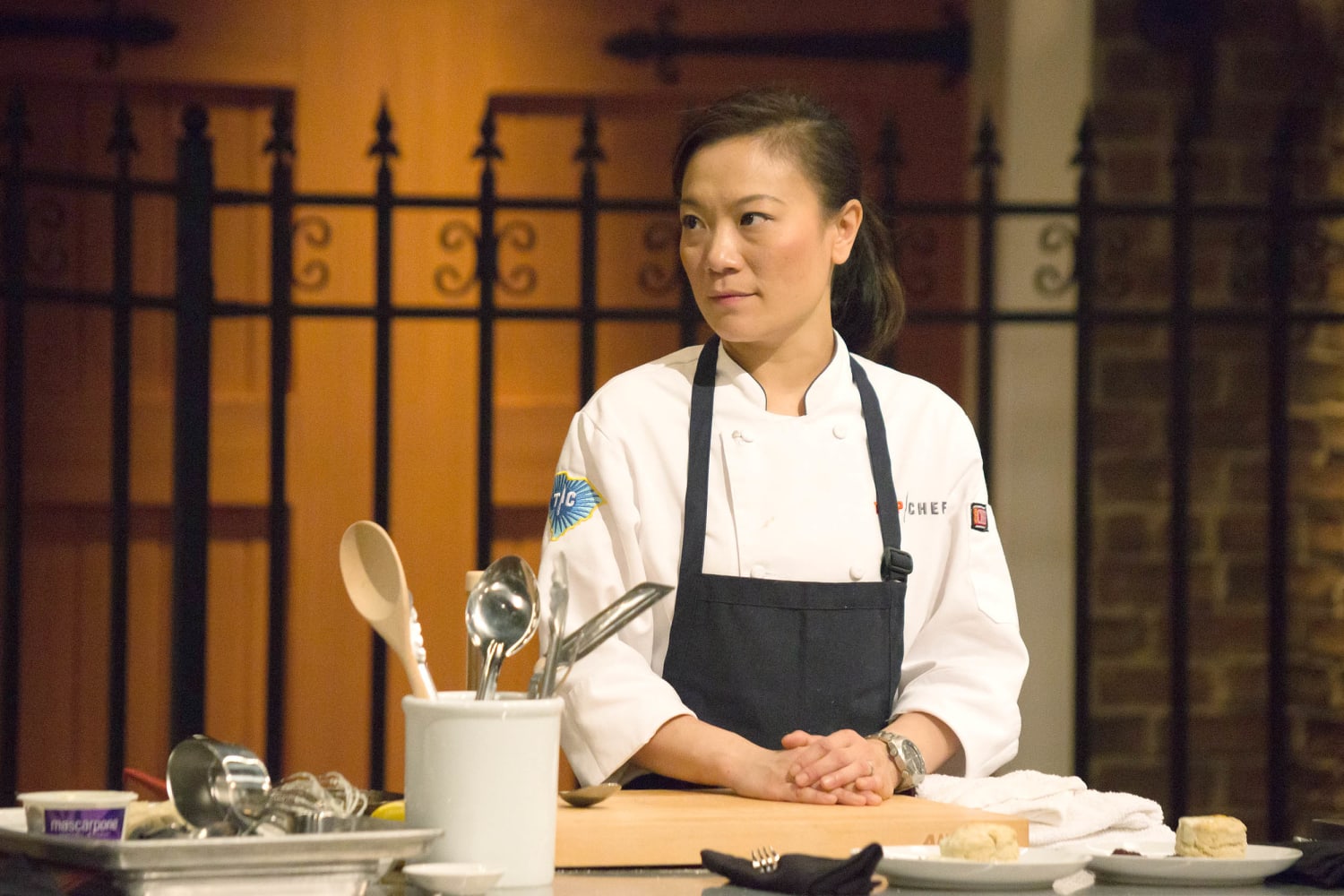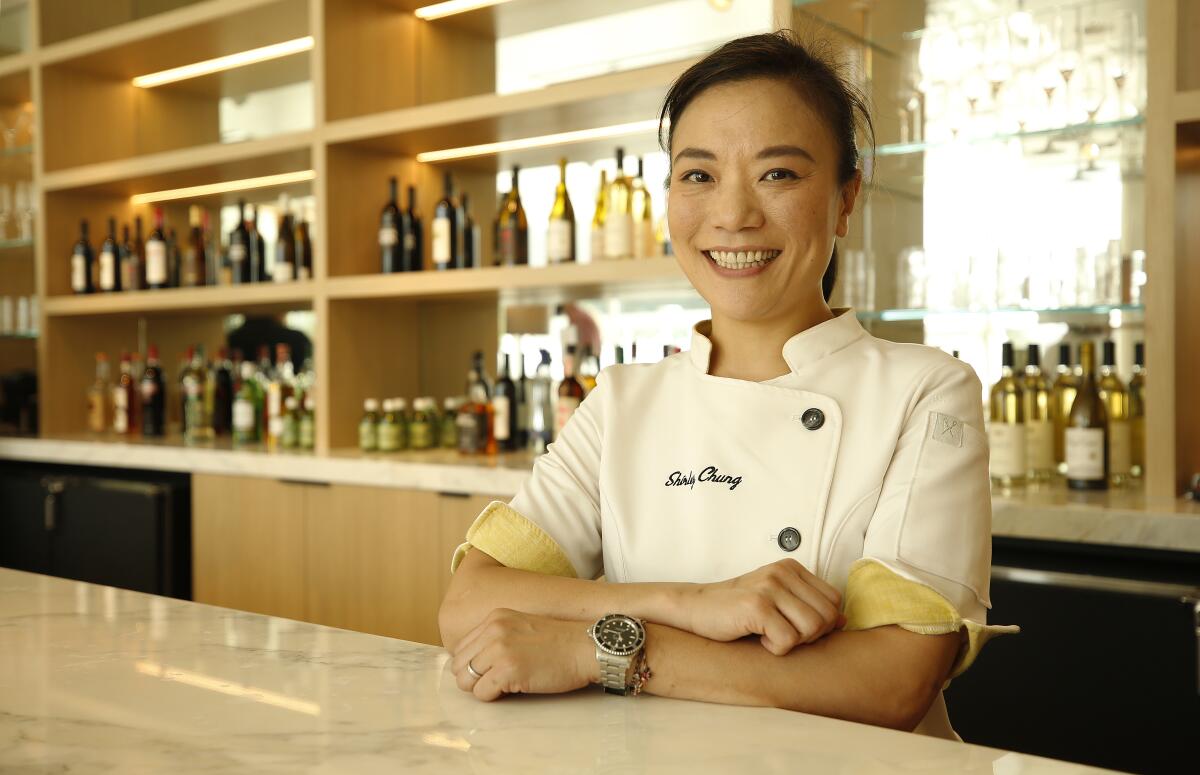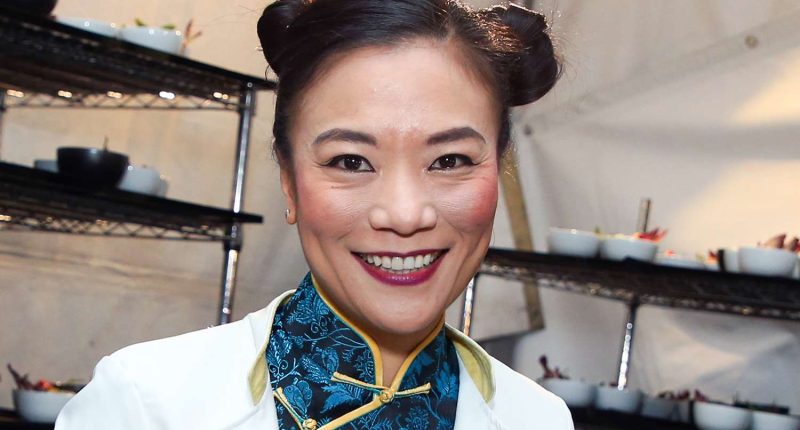Food Network Chef Shirley Chung faced tongue Cancer with a feeding tube choice, In a world where culinary delights reign supreme, she faced an unimaginable challenge: battling tongue cancer. As she navigated her treatment, she made a courageous decision that would alter her relationship with food forever—opting for a feeding tube. This article explores her journey, shedding light on the difficult choices faced by cancer patients and the importance of nutritional support during treatment.

Shirley Chung’s Story
Shirley Chung is not just a talented chef; she is a vibrant personality who has captured the hearts of many through her appearances on popular cooking shows. Known for her innovative dishes and culinary expertise, Chung has built a career around food. However, her recent diagnosis of tongue cancer brought an unexpected challenge that forced her to rethink her relationship with food.
Tongue cancer is a type of head and neck cancer that significantly impacts a person’s ability to eat, speak, and swallow. For Chung, this meant confronting the reality of losing the very thing that defined her professional life: cooking and enjoying food.
View this post on Instagram
Understanding Tongue Cancer and Its Challenges
Tongue cancer is categorized as either oral cavity or oropharyngeal cancer, with symptoms that can severely hinder daily life. According to the American Cancer Society, approximately 54,540 new cases of oral cavity or oropharyngeal cancers are diagnosed annually in the United States, with tongue cancer representing a significant portion of these cases.
Symptoms and Diagnosis
Common symptoms of tongue cancer include:
- Persistent pain in the tongue or mouth
- Difficulty swallowing (dysphagia)
- Visible lesions or sores on the tongue
- Changes in speech or difficulty articulating words
These symptoms can lead to significant challenges in maintaining proper nutrition. Many patients experience malnutrition due to their inability to consume adequate food during treatment. Research indicates that up to 90% of head and neck cancer patients face malnutrition during therapy, which can lead to severe complications such as delayed healing and increased treatment toxicity.
The Role of Nutritional Support in Cancer Treatment
Nutritional support is crucial for patients undergoing treatment for head and neck cancers like tongue cancer. Maintaining proper nutrition helps support the immune system, aids in recovery, and improves overall quality of life.
Importance of Enteral Nutrition
Enteral nutrition via feeding tubes can prevent malnutrition, dehydration, and treatment interruptions. A study published in The Journal of Nutrition found that early nutritional intervention significantly improved recovery outcomes for head and neck cancer patients. Enteral nutrition allows patients to receive essential nutrients when oral intake is compromised.
Types of Feeding Tubes
There are several types of feeding tubes used in medical practice:
- Percutaneous Endoscopic Gastrostomy (PEG) Tube: This is one of the most common types used for long-term nutritional support. It is inserted directly into the stomach through the abdominal wall.
- Nasogastric (NG) Tube: This tube is inserted through the nose and into the stomach for short-term feeding needs.
Each type serves its purpose depending on the patient’s condition and duration of nutritional support required.
Shirley Chung’s Decision-Making Process
Chung’s choice to use a feeding tube was not made lightly; it came after careful consideration of her health needs and discussions with healthcare professionals.

The Emotional Toll
The psychological impact of losing the ability to eat normally can be profound, especially for someone whose career revolves around food. For Chung, this meant grappling with feelings of loss and identity crisis as she transitioned from a chef who created culinary masterpieces to someone reliant on a feeding tube for sustenance.
Consultation with Healthcare Providers
Chung consulted with medical professionals specializing in nutritional management for cancer patients. These consultations are critical as they provide patients with comprehensive information about their options. Research shows that discussing nutritional needs early in treatment can lead to better outcomes and improved quality of life.
The Experience of Using a Feeding Tube
For many patients, using a feeding tube can be daunting but ultimately beneficial.
Initial Challenges
Patients often face initial challenges when adapting to a feeding tube. Common issues include discomfort during insertion, potential infections at the insertion site, and adjustments to new feeding routines. According to research published in Supportive Care in Cancer, these challenges can lead to anxiety and distress among patients.
Long-term Benefits
Despite these challenges, studies have shown that patients who utilize feeding tubes often experience improved quality of life metrics compared to those who do not receive nutritional support. A study conducted by researchers at the University of Michigan found that enteral nutrition significantly reduced hospital stays and complications associated with malnutrition among head and neck cancer patients.
Conclusion
Shirley Chung’s journey serves as an inspiration to many facing similar battles with cancer. Her decision to opt for a feeding tube reflects not only her commitment to her health but also highlights the critical role nutrition plays in recovery from cancer treatments.
If you or someone you know is facing similar challenges related to tongue cancer or any other type of head and neck cancer, consider seeking resources for nutritional support in cancer care. There are numerous organizations dedicated to providing assistance and information about managing nutrition during treatment.
View this post on Instagram
Additionally, follow Shirley Chung’s journey as she continues her fight against tongue cancer while inspiring others through her culinary passion. Sharing stories like hers can help raise awareness about the importance of nutrition in cancer treatment and encourage others to seek help when needed.
Shirley Chung’s brave choice highlights not only her resilience but also sheds light on an often-overlooked aspect of cancer care—nutrition. By understanding its significance and advocating for better support systems, we can improve outcomes for countless individuals battling this disease.
Also Read | How Jimmy Carter Defied Cancer: Insights from an Oncologist









